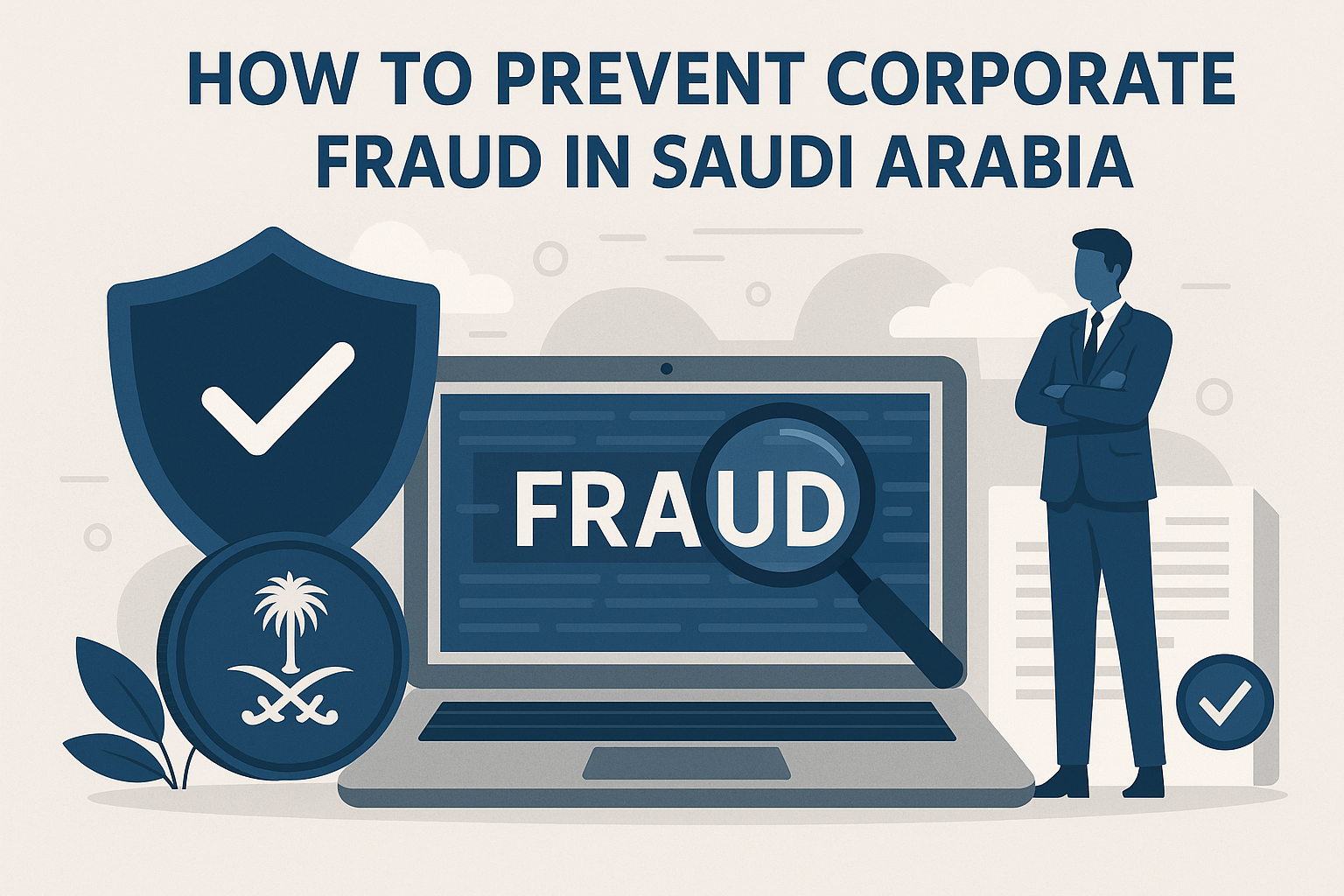
• Introduction
Corporate fraud is a growing concern in Saudi Arabia’s evolving business landscape. In fact, financial fraud cases in the MENA region rose by over 20% in 2024, with a significant portion affecting Saudi enterprises. As Vision 2030 drives economic transformation, the risks of fraud—financial misstatements, embezzlement, procurement fraud—have also become more complex.
With regulatory bodies like the Saudi Capital Market Authority (CMA) and the Anti-Corruption Authority (Nazaha) enforcing stricter compliance, businesses can no longer afford to overlook fraud prevention. This article explores how Saudi companies can proactively manage fraud risks through practical strategies, real-life examples, and expert guidance.
• What is Corporate Fraud?
Corporate fraud refers to any intentional deception by employees, management, or third parties for personal or organizational gain. Common types in Saudi Arabia include:
- Financial Statement Fraud – Misrepresentation of company performance.
- Asset Misappropriation – Theft of cash or assets.
- Bribery and Corruption – Illegal payments or kickbacks.
- Procurement Fraud – Falsified vendor invoicing or overbilling.
Key Characteristics:
- Hidden within legitimate transactions
- Often involves collusion
- Difficult to detect without strong governance mechanisms
• Why Corporate Fraud Prevention Matters in Saudi Arabia
Market Relevance
With the Kingdom’s growing focus on transparency, economic diversification, and foreign investment, corporate fraud prevention is now a national priority.
Regulatory Drivers:
- Saudi Vision 2030 mandates stronger corporate governance.
- Nazaha actively investigates corruption and promotes accountability.
- CMA’s Corporate Governance Regulations emphasize internal controls and audit functions.
Fraud not only results in financial losses, but also damages brand reputation, investor trust, and employee morale—especially in high-profile industries like construction, healthcare, and finance.
Challenges Saudi Businesses Face in Fraud Prevention
- Lack of Internal Controls: Many SMEs do not have robust financial oversight.
- Cultural Barriers: Fear of reporting or whistleblowing is common.
- Digital Transformation Risks: Weak cybersecurity can expose companies to digital fraud.
- Limited Training: Employees are often unaware of fraud schemes or red flags.
- Third-Party Risk: Vendors and contractors are frequent sources of fraud.
• Solutions & Best Practices
- Implement a Fraud Risk Management Framework
Adopt models like the COSO ERM framework or ISO 37001 for anti-bribery. Establish fraud policies, define risk appetite, and conduct risk assessments regularly.
- Strengthen Internal Controls
- Use segregation of duties (SoD) in financial transactions
- Automate processes using GRC software like CG BOD
- Set up independent audit committees
- Conduct Regular Fraud Audits
Use forensic accounting techniques and data analytics tools to detect anomalies early.
- Train Employees & Promote Ethical Culture
Host workshops, webinars, and simulations on fraud detection and ethical decision-making.
- Establish a Whistleblower Policy
Create secure, anonymous channels for employees to report suspicious behavior.
• Case Studies & Real-World Examples
Case Study: Fraud Detection in a Saudi Construction Firm
A Riyadh-based firm uncovered a procurement fraud scheme involving collusion between an employee and a vendor. By integrating CG BOD’s GRC platform, they automated contract approvals and implemented vendor scoring, which flagged the anomaly.
Case Study: Financial Services Firm Enhances Fraud Prevention
A major financial institution in Jeddah used predictive analytics to monitor high-risk transactions. Their internal audit team partnered with compliance experts to implement real-time alerts, reducing fraud incidents by 40% in 12 months.
• Conclusion: Taking Action Against Corporate Fraud in Saudi Arabia
To protect your business from the damaging effects of fraud, proactive fraud risk management is no longer optional—it’s a necessity. With the right strategy, tools, and culture in place, Saudi companies can build a resilient and compliant corporate structure
